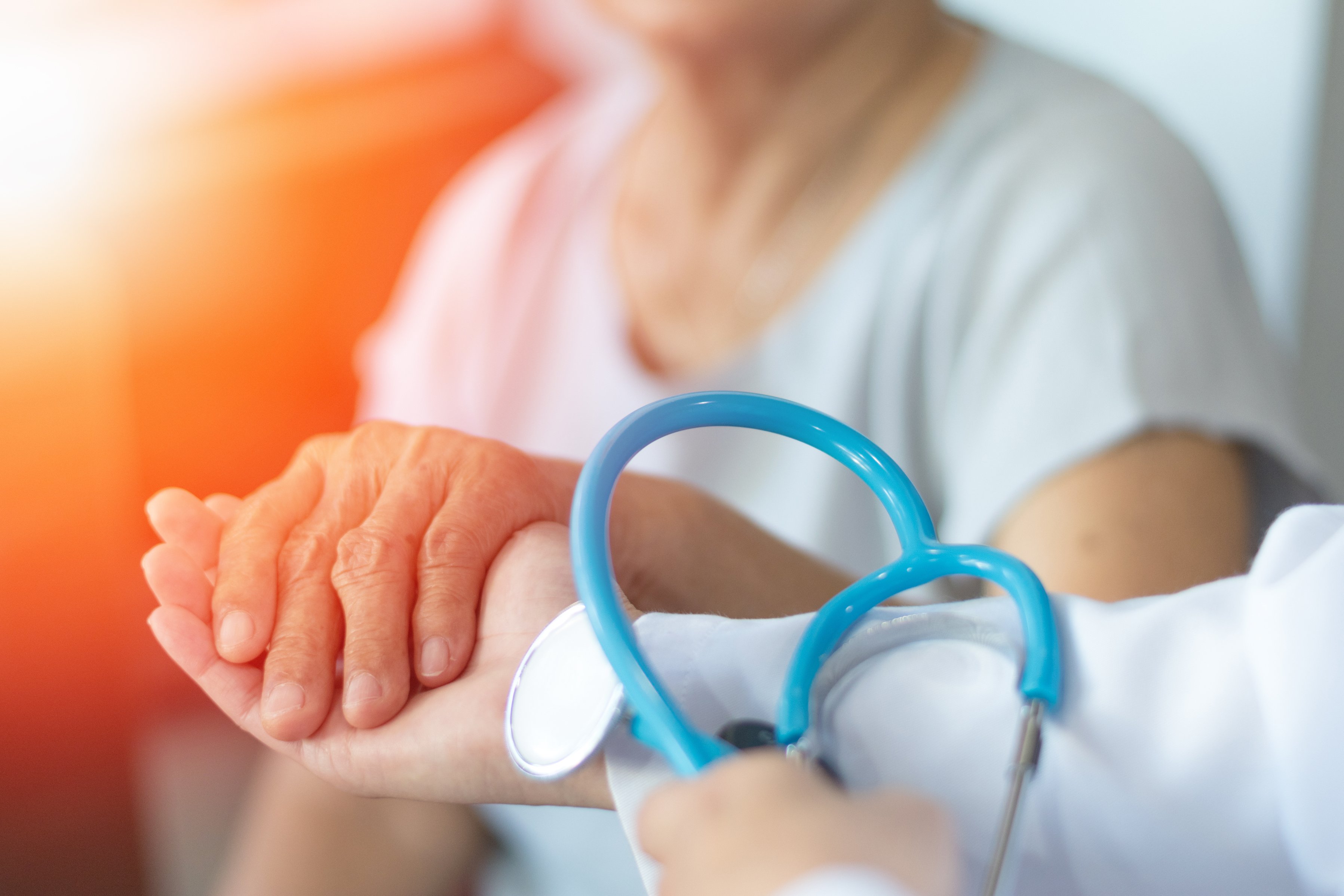
(Vienna, 17 August 2022) Cancer patients now experience the physical symptoms associated with cancer treatment as less burdensome than they did just a few years ago. This is the finding of a nursing science study conducted at University Hospital Vienna in 2014 and now followed up in 2022. The results indicate that advances in potential treatments and the expansion of nursing advice regarding symptom management are having a beneficial impact on patients' well-being.
In 2021, the departments of University Hospital Vienna and MedUni Vienna treated around 34,000 patients with cancer as their main or secondary diagnosis. Active cancer research on the site plays a key role in ensuring that patients are constantly benefitting from new procedures and personalised treatments, and that medical innovations are rapidly translated into routine clinical practice. Professional nursing advice and educating patients and their relatives on how to deal with symptoms and the side-effects of therapy is a cornerstone of cancer treatment at University Hospital Vienna. Based on the results of a survey conducted in 2014, several pillars have been developed in this area, including the first evidence-based nursing guideline on symptom management in the German-speaking world. The recent follow-up study indicates that these measures, in combination with advances in treatment, have beneficially impacted the physical burden experienced by patients and their quality of life.
Prevalence study compares the burden of symptoms in 2014 with that in 2022: the physical burden has lessened and quality-of-life has improved
In 2014, the Institute of Nursing Science at the University of Vienna, working in collaboration with the Comprehensive Cancer Center of University Hospital Vienna and MedUni Vienna and the Nursing Directorate at University Hospital Vienna, conducted a prevalence study, in which patients were asked about their physical and psychological symptoms and how these impacted their quality-of-life. The survey was then repeated in 2022.
A comparison of the two studies shows that, in 2022, patients perceived the physical symptoms associated with cancer treatment to be less burdensome, and their quality-of-life had improved. In particular, symptoms of tiredness and lack of energy (fatigue), hair loss, altered sense of taste and nausea were found to be less burdensome. In 2022, around three-quarters of respondents rated their quality-of-life as very good to moderately good, as against compared to around 40% in 2014.
There were hardly any changes in terms of the emotional stress experienced during cancer treatment. In general, women find it more stressful than men do. Individuals in the 20 - 40 age group and patients living in a household with children also report higher levels of emotional distress.
Treatment advances and the expansion of nursing advice are possible reasons for the improvements
The fact that the proportion of antibody- and immunotherapies deployed in the departments of University Hospital Vienna and MedUni Vienna has increased significantly from 12% in 2014 to almost half in 2022 is likely to have had a beneficial impact on physical symptoms. In contrast to chemotherapy, which targets all rapidly dividing cells, treatment with laboratory-produced antibodies specifically targets a particular characteristic of the cancer cells. Antibody therapies are thought to be better tolerated and can often be administered on an outpatient basis. Advances in research now allow more patients access to this form of therapy.
Since 2014, nursing advice for cancer patients has also been expanded. "The survey revealed which symptoms patients find most distressing. Working with the Institute of Nursing Science, we have used this as a basis for developing a symptom management guideline for nurses," says Christine Németh, oncology nursing coordinator within the Nursing Directorate of University Hospital Vienna. The nursing guideline is the first in the German-speaking world to be developed on the basis of locally collected data and it serves as a basis for nursing teams to educate and advise patients about measures they can take to prevent symptoms and side-effects and to enhance their self-management skills. Comprehensive nursing advice can delay and reduce symptoms and, in some cases, even prevent them altogether.
The establishment of experts in cancer care, such as cancer nurses or breast care nurses, and of outpatient nursing-care clinics, as well as the specific training offered for cancer nurses also make a significant contribution to improving the quality of care for patients and their relatives.
In the future, greater focus will be placed on relatives when it comes to symptom management. "The relatives of cancer patients often bear a lot of responsibility in their care. This will continue to increase as more and more treatments are administered on an outpatient basis, due to advances in treatment. Post therapy care is increasingly shifting to the patient's home, and the number of contacts between medical experts and patients is reducing," says Christine Németh.